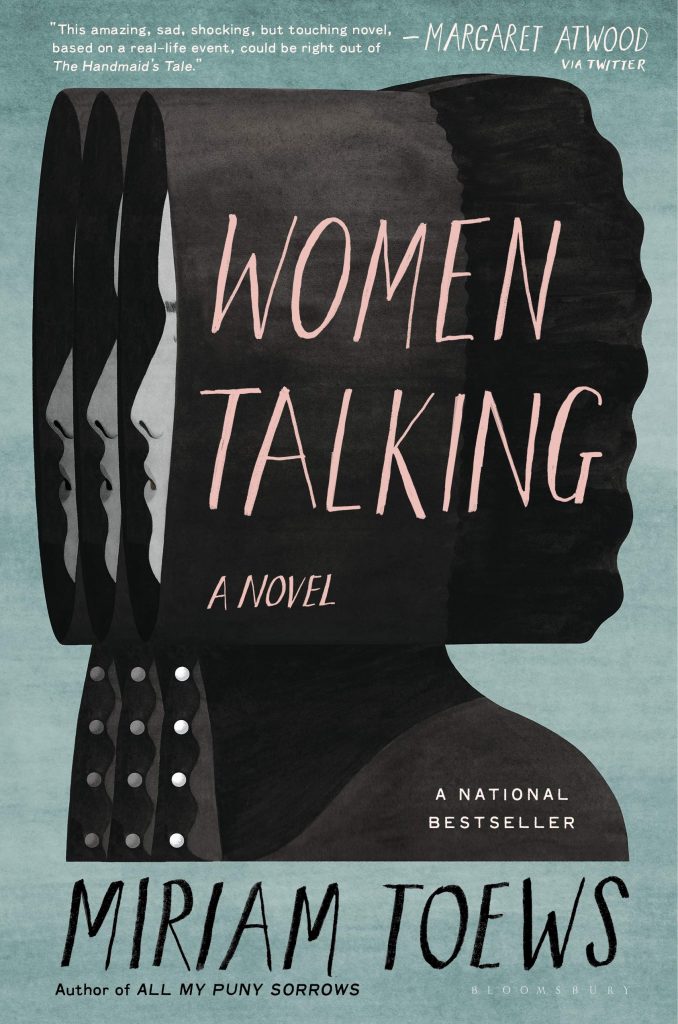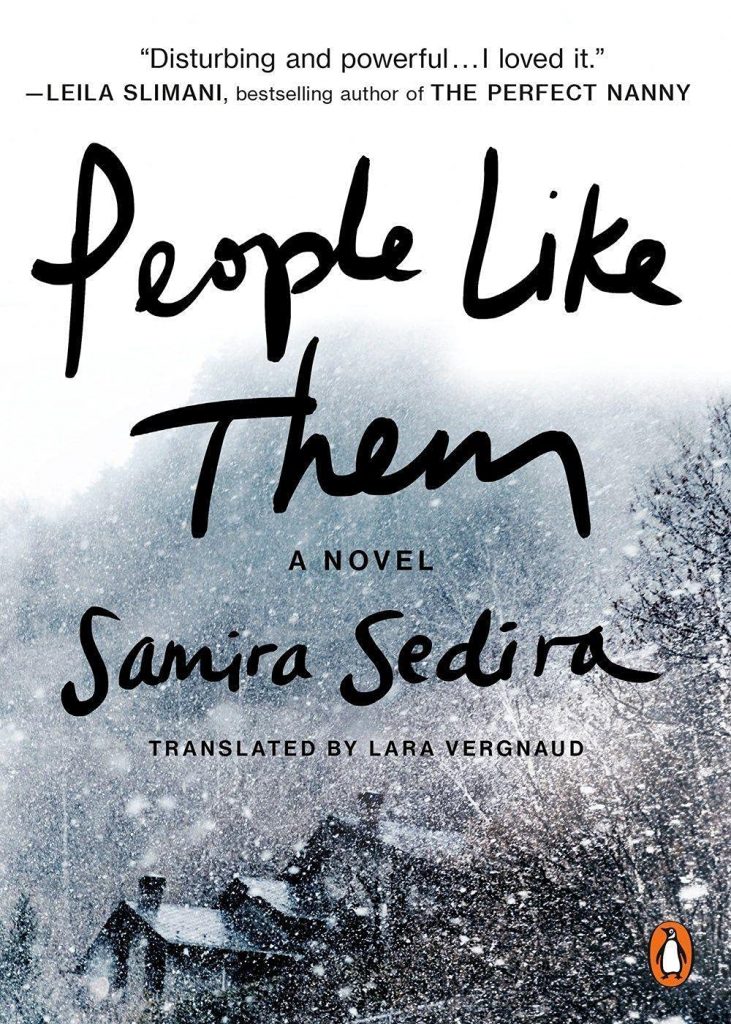Women Talking by Miriam Toews

First Line: My name is August Epp—irrelevant for all purposes, other than that I’ve been appointed the minute-taker for the women’s meetings because the women are illiterate and unable to do it themselves.
Summary: In an isolated Mennonite community, it has come to light that some of the men have been using a powerful poisonous spray, typically used to sedate livestock, to knock out and sexually assault women and children during the night. They awaken with no memory of the experience. But this all happens before we meet the women and girls of Molotschna. The title of this book is apt, as the “action” consists of the women talking in a barn, trying to decide whether they should:

- Do nothing
- Stay and Fight
- Leave

The men of the village, meanwhile, have been taken into custody but will be returning soon. As pressure mounts, the women argue, laugh, and try to define what it means to believe in God, to forgive, to be free, and to love. They name as their goals safety for themselves and for their children, and the freedom to think. Through it all, they are also enjoying each other’s company.
My Thoughts: One of the reviewers I trust, Molly Young, raves about Miriam Toews. She recommended starting with Women Talking so I picked it up. I will admit, the subject matter made me apprehensive to start reading. I thought it might be too dark, too depressing– especially since the book is based on real events. And while it is true that those events are depressingly grim, the book is anything but. For me, there is something so restorative and fortifying about spending an evening surrounded by women. (It’s also typically a lot of fun!) Reading this book had the same effect on me.
The only man in the barn is the minute-taker August, an awkward outcast and appreciator of the random fact who is in love with Ona, a nervous and thoughtful dreamer. The following conversation between the two is an example of the frequent, whimsical interludes from the tense atmosphere in the barn, and it tickled me:
“Did you know, I say, that there is a butterfly called the Comma?
Ona gasps.
It’s such an untoward reaction, so comical.
Is that so? she asks.
Yes, I say, it’s called the Comma because–but Ona stops me.
No, she says, let me guess. Because it flits about from leaf to stem to petal, pausing only briefly on its way? Because its journey is its story, never stopping, only pausing, always moving.
I smile and nod. Exactly, I say, that is why!
Ona punches the palm of her hand: Aha! She goes back to her seat.
But it’s not true, this is not why the Comma butterfly has its name. And of course there are periods within texts, journeys. Stoppage. The real reason, banal, is that the butterfly has a shape on the underside of its wing that resembles a comma. I don’t know why I let her believe otherwise, but someday, perhaps, it will be clear.”
FYI: Miriam Toews herself grew up in an isolated Mennonite village in Canada (not the one this book is based on).

